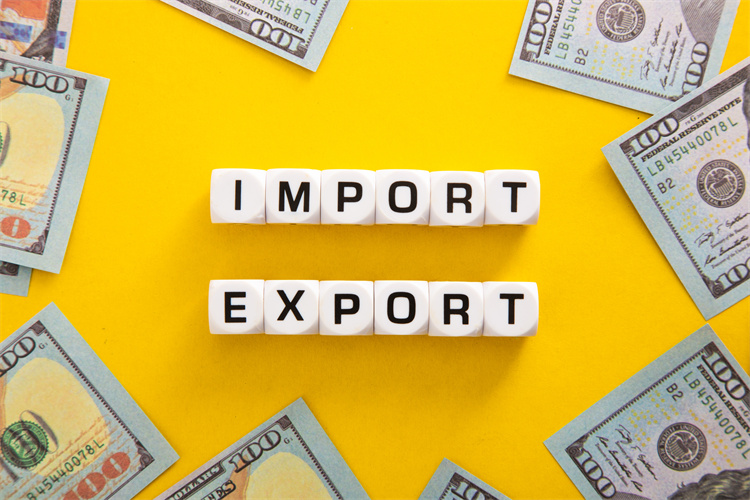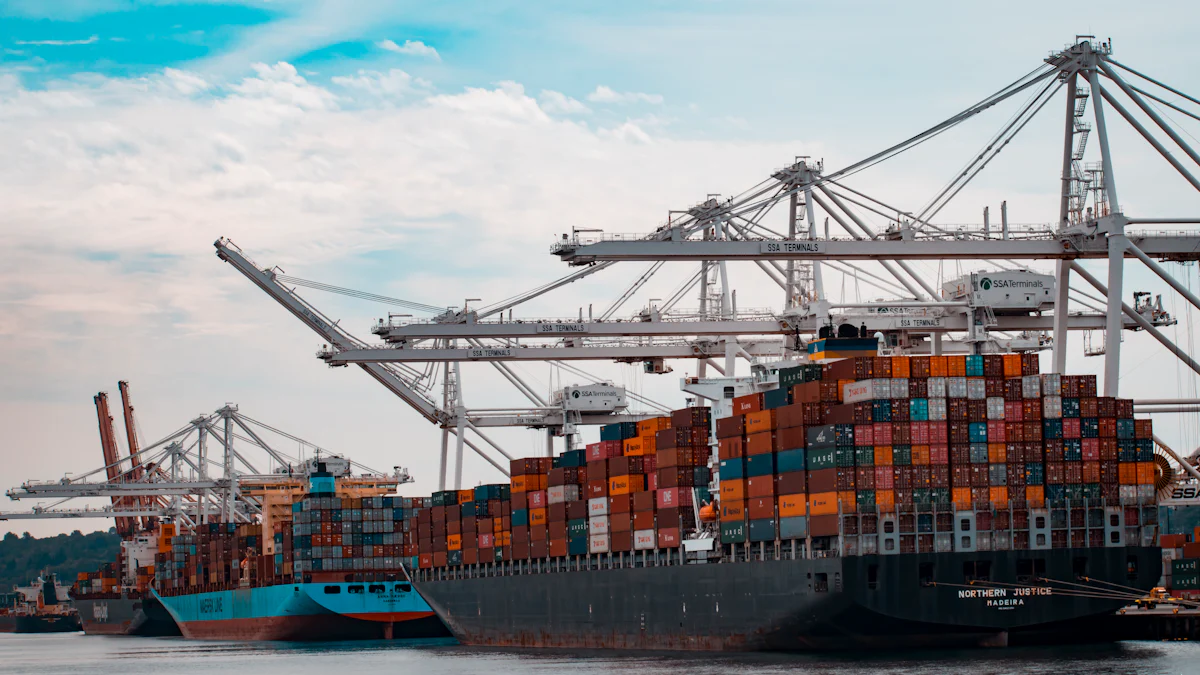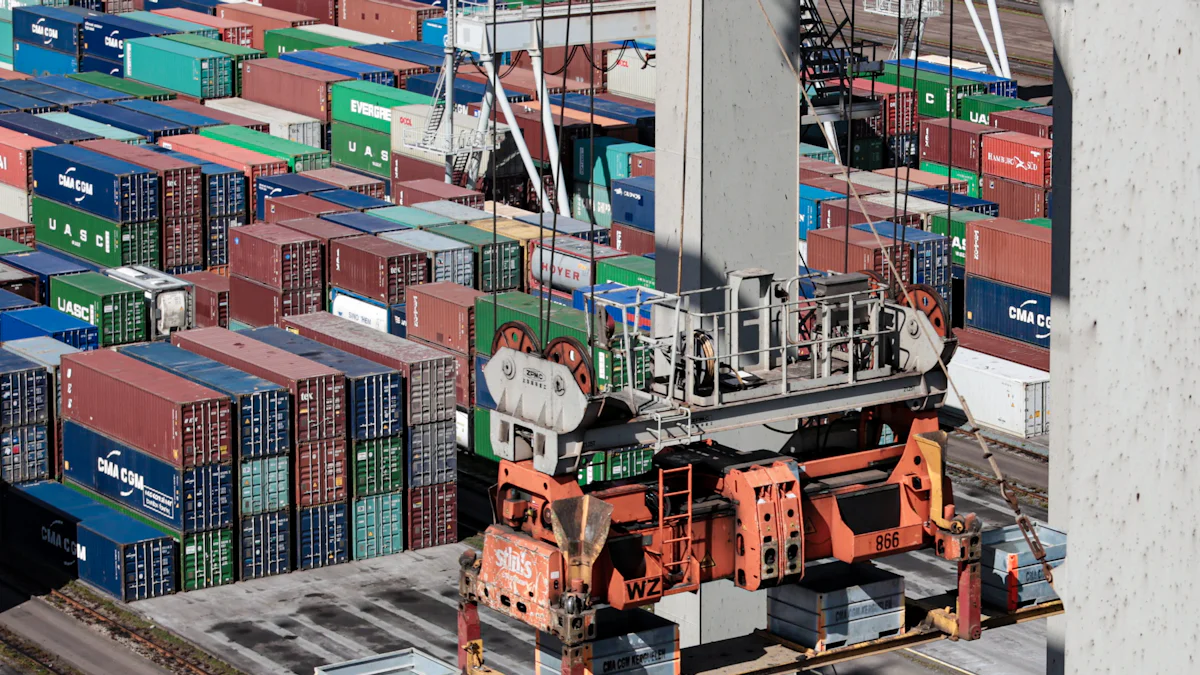Comprehensive Understanding of Customs Clearance Procedures and Import Considerations for India

Understanding Customs Clearance Procedures is essential for importers in India. Importers must navigate complex regulations to ensure smooth operations. India's import volumes reached over 570 billion US dollars, highlighting the country's significant trade activities. Compliance with customs requirements prevents delays and penalties. The Effectively Applied Tariff Weighted Average stands at 5.87%, while the Most Favored Nation Tariff averages 7.31%. These figures emphasize the importance of adhering to customs regulations. Importers benefit from a thorough understanding of these procedures, ensuring efficient and cost-effective importation.
Customs Clearance Procedures

Key Steps in Customs Clearance
Submission of Import Declaration
Importers must submit an import declaration to begin the Customs Clearance Procedures. This document provides details about the goods being imported. The declaration includes information such as the description, quantity, and value of the goods. Importers must ensure accuracy to avoid delays or penalties. The customs authorities use this information to assess duties and taxes.
Assessment and Payment of Duties
Customs authorities assess duties and taxes based on the submitted import declaration. The assessment considers factors like the type of goods and their value. Importers must pay the assessed duties and taxes before proceeding. Payment ensures compliance with customs regulations. The timely payment of duties facilitates the smooth clearance of goods.
Inspection and Release of Goods
Customs officials may inspect goods to verify the accuracy of the declaration. Inspections ensure that the goods match the declared information. Officials check for compliance with safety and quality standards. After a successful inspection, customs authorities release the goods. Importers can then proceed with the distribution or sale of the goods.
Required Documentation
Commercial Invoice and Packing List
The commercial invoice and packing list are essential documents in the Customs Clearance Procedures. The commercial invoice provides details about the transaction, including the buyer and seller information. The packing list outlines the contents of each package. Both documents must accurately reflect the shipment details. Accurate documentation prevents discrepancies during the clearance process.
Bill of Lading or Air Waybill
The bill of lading or air waybill serves as a contract between the shipper and carrier. These documents provide evidence of the shipment and its terms. Importers must present these documents during customs clearance. The bill of lading or air waybill confirms the receipt of goods by the carrier. It also outlines the transportation details.
Importer Exporter Code (IEC)
The Importer Exporter Code (IEC) is mandatory for importers in India. The Directorate General of Foreign Trade issues the IEC. This code is essential for engaging in import-export activities. Importers must include the IEC in all relevant documentation. The IEC ensures compliance with Indian trade regulations.
Import Considerations for India

Regulatory Compliance
Know Your Customer (KYC) Requirements
Importers in India must comply with the Know Your Customer (KYC) requirements. The Indian Customs mandates KYC norms for all non-document small shipments. Importers need to provide government-recognized ID and address proofs of the consignee. This requirement ensures that the identity and address of the consignee are verified. Importers must submit these documents before customs clearance. Failure to comply results in delays or penalties.
Power of Attorney (POA) Documentation
Power of Attorney (POA) documentation is essential for importers in India. Importers must authorize a representative to act on their behalf. The POA document grants legal authority to the representative. This document is necessary for customs clearance procedures. Importers must ensure that the POA is valid and up-to-date. Proper documentation facilitates smooth customs operations.
Duties and Taxes
Duty-Free Allowances for Gifts and Samples
Duty-free allowances apply to gifts and samples imported into India. Importers must declare items as gifts or samples on the invoice. The value of samples must not exceed INR 10,000 to qualify for duty-free clearance. Importers benefit from reduced costs by adhering to these regulations. Recent changes have imposed duties on all gifts, regardless of value. Importers must stay informed about these changes to avoid unexpected costs.
Recent Changes in Duty Regulations
Recent changes in duty regulations impact importers in India. The Indian government has revised duty rates for various goods. Importers must understand these changes to ensure compliance. The changes affect the cost of importing goods into India. Importers must adjust their strategies accordingly. Staying updated with regulatory changes is crucial for successful importation.
Special Considerations for Specific Goods
Shipping of Documents and Letters
Use of DOC and Non-DOC Bags
Shipping documents and letters require specific packaging. Indian customs regulations mandate the use of DOC bags for documents and letters. Non-DOC bags must contain all other items. This distinction ensures proper Customs Clearance Procedures. Carriers must adhere to these guidelines to avoid penalties. Accurate categorization of shipments facilitates smooth customs processing.
Importing Chemicals and Valuables
Master Air Way Bill (MAWB) Requirements
Importing chemicals and valuables involves additional documentation. The Master Air Way Bill (MAWB) is mandatory for customs clearance. This document provides comprehensive details about the shipment. Importers must ensure accuracy in the MAWB to prevent delays. Customs authorities rely on the MAWB for assessing the shipment's compliance with regulations. Proper documentation streamlines the Customs Clearance Procedures.
Designated Airports for Clearance
Certain goods require clearance at designated airports. Chemicals and valuables must pass through specific locations for customs processing. Kolkata Airport handles shipments for the East Zone. Bangalore Airport serves the Karnataka Region. Delhi Airport manages clearances for the North Zone. Chennai, Hyderabad, and Kochi Airports cater to the South Zone. Mumbai Airport processes all other destinations. Importers must direct shipments to the appropriate airport for efficient clearance. Adhering to these guidelines ensures compliance with Customs Clearance Procedures.
The customs clearance procedures in India involve several key steps. Importers must adhere to these procedures to ensure smooth operations. Compliance with import regulations is crucial for preventing delays and penalties. Successful importation into India requires a thorough understanding of these processes. Importers must stay informed about regulatory changes to maintain compliance. Regular updates on customs regulations help businesses adapt to new requirements. A proactive approach ensures efficient and cost-effective importation.
See Also
Discovering Triumph in International Trade with JUSDA
Mastering Hurdles in Automotive Supply Chain: Pro Advice
Revolutionary Approaches: Uncovering Partnerships in Global E-commerce
The Definitive Handbook on Worldwide Logistics Firms Exposed
